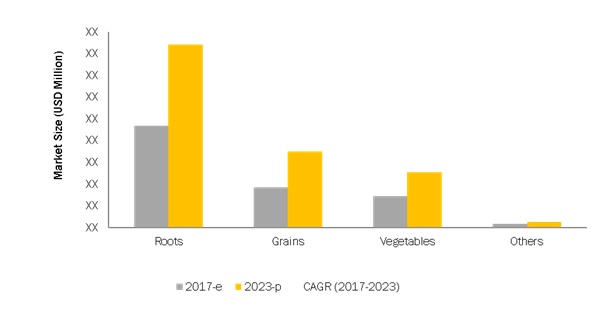The global prebiotic ingredients market size was valued at USD 3.65 billion in 2016 and is projected to reach 7.4 billion at a CAGR of 10.4% by 2023.
Prebiotic ingredients are the non-digestible dietary fibers that are beneficial for the microflora that is present in human and animal’s gut. Prebiotics has the potential as agents to improve or maintain balanced intestinal microflora to enhance health and well-being.
They can be incorporated into many food products. Prebiotic ingredients are considered to be benefits for the treatment of inflammatory bowel disease, diarrhea, colon cancer, for calcium absorption, and to maintain bone health, skin health, immunity, and obesity. Awareness about prebiotics has gained popularity in recent years, stimulating scientific as well as industrial interest.
Prebiotic ingredients act as food for probiotic bacteria present in the human and animal gut that eventually modify the colonic microflora, and stimulate the growth of non-pathogenic bacteria, particularly Lactobacilli and Bifidobacterium.
According to the FAO, usage of prebiotic ingredients in food products has helped balance the intestinal flora. Prebiotic ingredients include fructooligosaccharides, galactooligosaccharides, inulin, mannan oligosaccharides, and xylooligosaccharides. These have multifunctional properties and are associated with various health benefits, such as improved gut health, cardiovascular health, bone health, and immunity. The multifunctional nature of prebiotic ingredients coupled with proven health benefits drives the prebiotic ingredients market.
Consumers are increasingly becoming fitness-conscious and prefer accommodating nutrient-dense and health-enriching products in their diets. To align with the increasing demand of consumers, leading manufacturers focus on utilizing prebiotic ingredients such as inulin in a range of food & beverage products.

The use of prebiotic ingredients remains high among manufacturers as they improve bone health, skin health, and maintain the blood-sugar level of consumers. Due to these factors, the demand for prebiotic ingredients is projected to remain high in the food & beverage industry.
Leading players operating in the market include Cargill (US), BENEO (Germany), DuPont (US), Fonterra (New Zealand), FrieslandCampina (Netherlands), and Ingredion (US). Key players operating in this market are adopting strategies such as expansions, new product launches, acquisitions, and partnerships.